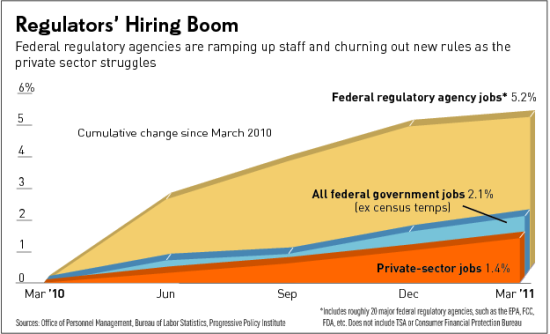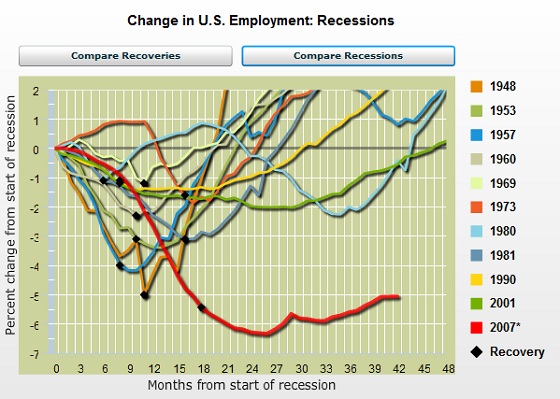Did Obamacare cause the economic collapse
By the spring of 2010, private sector job growth turned positive. In April job growth increased to 230,000 net private-sector jobs. The economy appeared on track for a normal recovery from an awful recession. The administration began confidently predicting a “Recovery Summer.” But Recovery Summer fizzled instead of sizzled. In May private sector job growth dropped sharply to less than 50,000 net jobs. Thereafter, monthly improvement in private job growth averaged just 6,500 jobs.
What else happened in the spring of 2010? Despite obstacles that many believed would kill the bill, Congress passed the Affordable Care Act. Within two months, the trend in job growth dropped sharply. Monthly job creation had been on pace to top out in the hundreds of thousands. Post-Affordable Care Act, it has barely kept pace with population growth. [emphasis mine]
and
The health-care measure raises business costs and makes planning for the future more difficult. It should be expected to slow hiring.
Federal Reserve officials report that the law has had exactly this effect. Dennis Lockhart, president of the Atlanta Fed, reports that “prominent among these (factors businesses explain are impeding hiring) is the lack of clarity about the cost implications of the recent health care legislation. We’ve frequently heard strong comments to the effect of ‘my company won’t hire a single additional worker until we know what health insurance costs are going to be.'” Surveys bear out these warnings. In a recent poll one-third of small business owners identified the healthcare bill as one of their top two obstacles to hiring. [emphasis mine]
By the spring of 2010, private sector job growth turned positive. In April job growth increased to 230,000 net private-sector jobs. The economy appeared on track for a normal recovery from an awful recession. The administration began confidently predicting a “Recovery Summer.” But Recovery Summer fizzled instead of sizzled. In May private sector job growth dropped sharply to less than 50,000 net jobs. Thereafter, monthly improvement in private job growth averaged just 6,500 jobs.
What else happened in the spring of 2010? Despite obstacles that many believed would kill the bill, Congress passed the Affordable Care Act. Within two months, the trend in job growth dropped sharply. Monthly job creation had been on pace to top out in the hundreds of thousands. Post-Affordable Care Act, it has barely kept pace with population growth. [emphasis mine]
and
The health-care measure raises business costs and makes planning for the future more difficult. It should be expected to slow hiring.
Federal Reserve officials report that the law has had exactly this effect. Dennis Lockhart, president of the Atlanta Fed, reports that “prominent among these (factors businesses explain are impeding hiring) is the lack of clarity about the cost implications of the recent health care legislation. We’ve frequently heard strong comments to the effect of ‘my company won’t hire a single additional worker until we know what health insurance costs are going to be.'” Surveys bear out these warnings. In a recent poll one-third of small business owners identified the healthcare bill as one of their top two obstacles to hiring. [emphasis mine]


